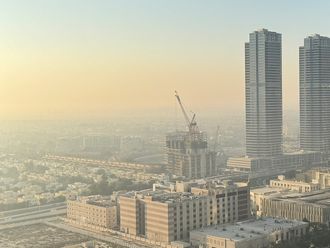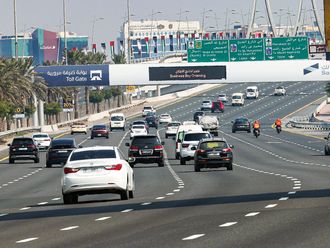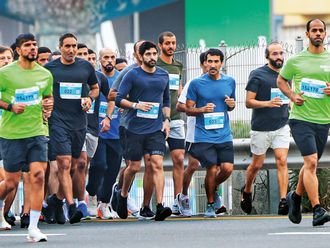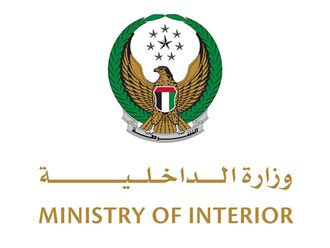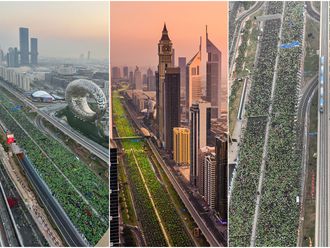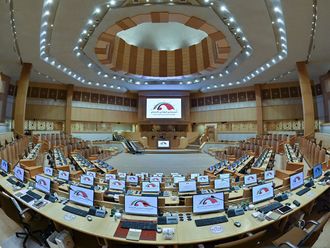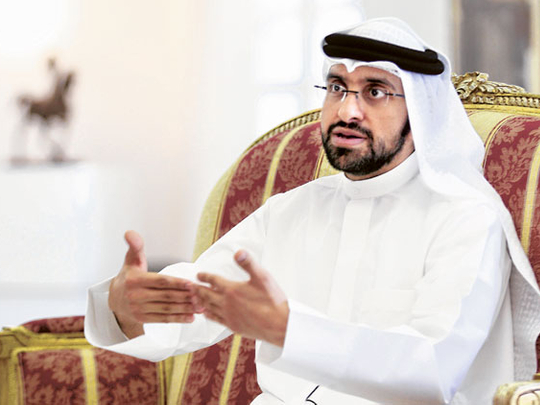
Dubai: Sultan Sooud Al Qassemi, founder of Barjeel Art Foundation, believes an art culture will develop in due course.
An international collector, Al Qassemi carried his love for art a step further by establishing the Barjeel Art Foundation in Sharjah.
He believes that the art movement will trickle down to the grassroots of society through similar initiatives and education.
"You cannot force art onto people but you can use it as an avenue to communicate with people. We have to allow for the organic growth to also take place."
Dubai Sultan Sooud Al Qassemi, founder of Barjeel Art Foundation, speaks to Gulf News about the art scene in the UAE and ways in which it can be improved.
Gulf News: What goal were you hoping to achieve by setting up the Barjeel Art Foundation?
Sultan Sooud Al Qassemi: Although I collect art from all over the world I decided to set up the foundation to preserve and share art exclusively from the Arab world. So far we have been successful in not only attracting visitors to the centre but also sending art works across the world.
What role do you see art playing in society?
I think art is an important yet neglected avenue of dialogue and conversation with others. A lot of the art that comes from regions that are very charged like the Arab world is political and sometimes governments do not know that it is political.
In your opinion what challenges do artists face here?
We require a neutral space which doesn't have an affiliation to an individual such as this space so artists can approach them and show their work. The other issue is that we lack proper criticism or critique of art. We need this to advance to the next level.
Do you think art has become a part of everyday life in the UAE?
What I see lacking is more public art. Public art raises questions of curiosity which is very important. Art is supposed to provoke thoughts and ideas. Unfortunately when the UAE government dedicates sculptures in open spaces we're not sure who the artist is, we don't have any information about the art work.
Another issue is that art in the school curriculum is not enforced properly, some schools offer it and others don't.
What would you like to see happening in this art movement?
I would like the government to help the art foundations, artists, and galleries. The problem is the legislation we have here is great for the 1970s but it's not up-to-date with regards to non-governmental organisations.
It is difficult for us to register as an NGO. The licensing for the art galleries is very complicated. All the galleries here must have two trade licenses. That is unsustainable even in a developed economy.
The government has to recognise that art is a vital part of tourism, in attracting high quality tourists. We need to sit down and solve the issues and come up with commercial laws to reflect the needs of this new art movement that is taking place in the UAE.
Christie's: Record sales for renowned art auctioneer
- Ahmad Askalany (Egyptian, b. 1978), Kissing, 2011
Expected: $30,000-$40,000
Sold: $68,500 (Dh251,600)
Buyer: European private collector
- Aydin Aghdashloo (Iranian, b. 1940), Untitled (From the Memories of Destruction series), 2010
Expected: $35,000-$45,000
Sold: $68,500 (Dh251,600)
Buyer: Middle Eastern private collector
- Reza Derakhshani (Iranian, b. 1952), Shirin & Farhad, 2008 Expected: $30,000-$40,000
Sold: $61,250 (Dh224,971)
Buyer: Middle Eastern private collector



